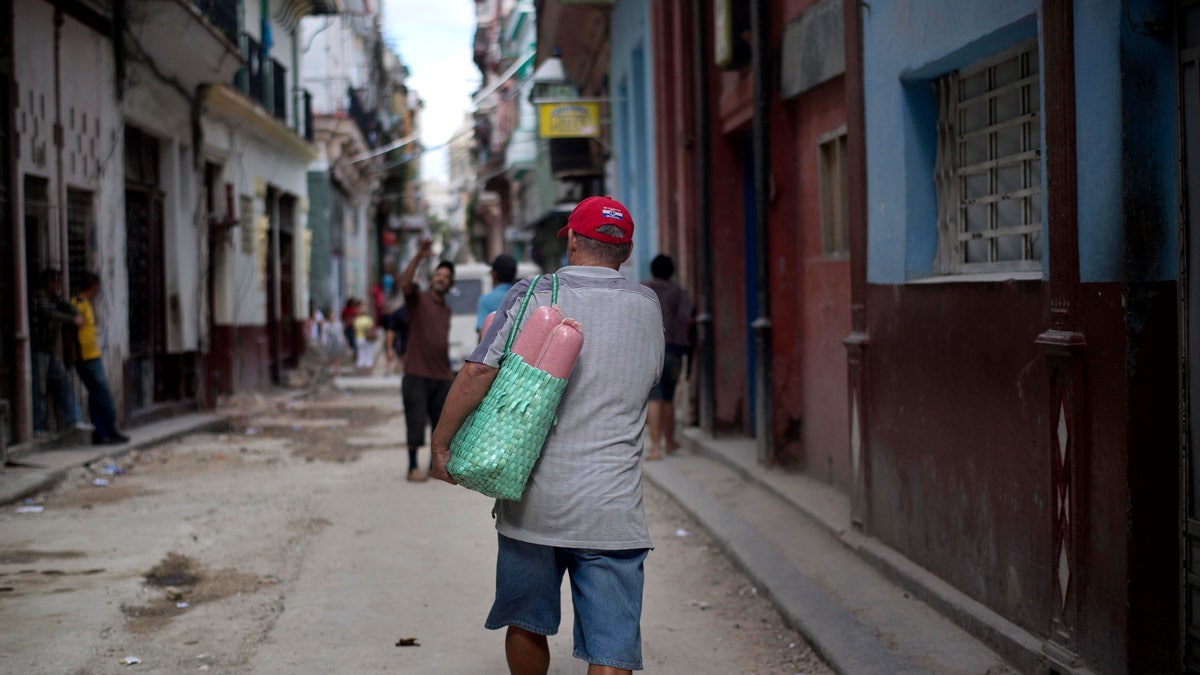
La Habana Vieja, Cuba, on Wednesday Dec. 17, 2014. (ap)
While Cuba has seen several economic reforms, including entrepreneurial opportunities for its citizens, under President Raul Castro much of the censorship and oppression that has characterized the Communist regimes of the Castro brothers still remains.
According to the Washington Post, this year, when the U.S. and Cuba have been moving toward normalizing diplomatic relations and opening up trade and travel, dozens of artists, activists and dissidents have been arrested and detained.
“Money is not going to solve Cuba,” said Tania Bruguera, an artist who is a Cuban national and who made headlines in December when Cuban authorities arrested her after she planned a performance in Havana’s Revolution Plaza that was focused on freedom of expression.
“People can actually live their fantasy in Cuba. But because of that, because the government knows that, and because the government is providing that, it’s giving the key to access that kingdom to anyone who is going to behave well,” Bruguera told the Post. “And that counts for foreigners, for businessmen, for foreign press, for artists, anybody,” said the 46-year-old artist, whose passport is still confiscated by the Cuban government.
Obama administration officials respond to criticism about its overtures to the Raul Castro regime – Cuba’s reluctance to move toward giving its people more freedom – by saying that such change cannot happen overnight, and that more frequent exchanges between Cubans and Americans can slowly force democratic reforms on the island.
Cuban officials, by contrast, seem to be focusing on using the easing of U.S. trade and travel restrictions as something that can benefit the island’s economy, and by extension the government, without the Castro regime making any real political changes, the Post said.
Cubans on the island express hope that both things can happen with better U.S.-Cuba relations, but they are skeptical.
The Post cites an Univision/Fusion poll in April that showed that a slight majority of Cubans wish they lived in another country, that 70 percent would like to have their own business, and that 75 percent are afraid to express their true opinion in public.
Javier Nuñez Florian, a Cuban actor now residing in Las Vegas, says he is hopeful that many things will improve in his country, though it won’t be dramatic or large.
“The U.S. is meeting in the middle, little by little getting closer to Cuba, and Cuba the same,” he is quoted as saying in the Post. “Little by little everything is changing for the better.”




